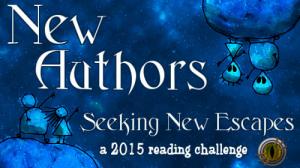***This is the last interview that will be published on Savvy Verse & Wit; please subscribe to Substack.***
Eden Robins is the author of Gold: Heart of a Warrior, and today, she’ll be sharing her writing journey, what her favorite characters are like, and what advice she has for aspiring writers like you.
“Thank you for having me on Savvy Verse &Wit. I’m grateful for the opportunity to share more about my writing journey with you…,” said Eden Robins.
Savvy Verse & Wit (SVW): What has your writing journey been like? When and how did you start writing and what keeps you going?
Eden Robins (ER): My writing journey has been a learning experience, both in terms of developing my craft as a writer, and my own personal evolution. It’s also been a trek of getting lost for a while and then, eventually, finding my way back.
My first book, a sci-fi futuristic romance entitled, Never Until Tomorrow, was published in 2000. Writing “The End” on the last page of that story was the act that made me decide to take writing seriously. While growing up, creativity had been my close and consistent companion, but up until finishing that first book, I had only considered writing a hobby to indulge in when I wasn’t working at my “real job”. I thought getting a business degree, opening a bakery with my husband, and raising three children was the real life I was supposed to be living, while writing was just for fun.
Never Until Tomorrow came about when I lost my paternal grandfather. After he died, I kept wishing I could go back to before his death and spend more time getting to know him. That thought stayed with me for months and the urge to write about it grew inside me until one night I sat down at my computer and started typing. Being able to translate what was in my heart to paper in this way was not just cathartic, it was also an epiphany. I realized not only how much I loved the writing process, but also that I wanted to do it for the rest of my life.
Once that decision was made, I was lucky enough to find publishers interested in my work and had the privilege of sharing my stories with others. Nine novels later, my husband and I separated, then divorced and I simply stopped writing. I just couldn’t seem to put the words together, except for sporadic, distracted scribblings that didn’t amount to much. It was like my creativity had suddenly dried up and disappeared. It was incredibly frightening to think that the thing which had been my companion and guide since I was little would suddenly leave me. A decade later and lots of lessons learned, my creative spark returned, and I began to write again. I realize now that my creativity had never left me, it had just shifted to a different part of my life that needed my attention. But that’s another story for another time.
Today, what keeps me writing is love and hope. The love I have for the emotional hills and valleys I go on as I invest my heart and mind in the people and worlds I’ve created, and the love I hope grows in my readers hearts when they connect with the characters and stories I write. I also keep writing because of the Happily-Ever-Afters. As an avid reader myself, I savor the feeling of a satisfying ending, one that leaves me hopeful and happy, and as a writer, providing that same gift to my readers feels like the right path for me to be on, and stay on.
SVW: How long did it take you to write Gold: Heart of a Warrior? What were some of the obstacles you encountered?
ER: The first part of your question is a tricky one. Sounds strange, I know, but since I wrote Heart of a Warrior over ten years ago, while in the midst of a separation and eventual divorce, the exact timing is a little fuzzy. I believe it took about a year and the greatest obstacle I encountered was myself.
Finishing the book wasn’t an issue. I had the story pushing to come out of my head and onto the paper, so I let it flow. Once my divorce went through, however, something shifted for me and my priorities changed. I half-heartedly submitted Heart of a Warrior to a couple of publishers, but when I didn’t get a request for more, I let it drop and stuffed the story away. My mind set at the time wasn’t conducive to connecting with a publisher and getting that first story in my Gold series out to readers. I was distracted and disheartened, so more than anything else, that book not getting published for over a decade after I finished it was me being the obstacle.
Having said that, I also believe strongly that it’s the obstacle which can often guide me to where I want to go. Ryan Holiday, in his book The Obstacle Is the Way, writes a lot about this. The obstacle to me getting published again was me. My life was in transition, I didn’t feel ready, and I had lost belief in myself and what I was doing. It was only when I came back to myself, and fully embraced the journey I was on, that my work got published again.
SVW: Who are your favorite types of characters to write? Why?
ER: Interesting question. I don’t think I’ve been asked that before. I’d have to say that I like writing about a character who is or becomes determined to evolve in their life, no matter where they’re starting from or how messy it becomes, and I also enjoy penning a villain who savors and revels in their villainy. In both cases it’s about determination and intention, and there’s a richness and depth to it that’s so fulfilling to write about. A character who is willing to grow, even in the face of ugliness and fear is a character who’s multifaceted and can or learns how to access those different parts of themselves. They are or become resourceful and self-contained in a way that takes them to that next level of life they’re facing or seeking. Think of Harry in the Harry Potter series or Frodo in The Lord of the Rings.
A villain who isn’t tortured by regrets, guilt, doubts or uncertainty, but instead revels in their villainy and is ripe with the kind of arrogant certainty and self-aware intention that keeps propelling them forward is fascinating and fun to write about. Think of Hannibal Lector in Silence of the Lambs or the Grinch in How the Grinch Stole Christmas.
SVW: When and where do you most often write? Do you have special totems on your desk? Music playing in the background? Paint a picture of your writing space and day, or include a couple of photos.
ER: I write most often in my home office, or what I call my Creatress Space. My desk faces two large windows with amazing views. I’ve stared out those windows more times than I can count, imagining the stories, people and worlds I write about. I do have several totems on my desk. A tiger pin for strength. A coin inscribed with the words, “The Obstacle Is the Way,” to help me remember to look at obstacles as opportunities, and a rough cut stone amethyst to remind me that the gift I want to share with the world is already inside me. There are others, but those are a few.
I also have some posters and paintings up around the alcove where my desk sits. One is Henry David Thoreau’s quote, “Live the life you’ve imagined”. It helps me remember to stay present to the life I’m living each day.
I often, but not always play music while writing. The type of music varies. I often listen to Lo Fi instrumental while writing or editing. Music, for me, is a magic carpet that can take me to so many places, past, present and future, across the globe or just next door. It brings me back to my feelings, which then get expressed in my writing.
SVW: If you could give one piece of advice to an aspiring writer, what would it be?
ER: Write. Keep writing. In my opinion, when one is just starting out, it’s so important to focus on putting the words on the page rather than trying to create a perfect masterpiece. There’s a magic that comes from simply getting the story out of your head and on paper. And the more you write, the stronger the magic. Know what that magic produces? Better writing. Know what else it does? Creates more ideas.
Simply put, writing begets writing, which begets better writing, which begets more creative writing, which begets better, more creative writing, which leads to the masterpiece one wanted to write in the first place. It’s definitely important to begin with the end in mind, but only to the extent that one doesn’t back themselves into a corner. Knowing what one wants without worrying about how one will get it is key. Focus on one step at a time and trust that the magic of writing will get you there.
SVW: Who is your favorite poet or what is your favorite poem?
ER: My favorite poet is Mark Nepo. His poetry and prose capture so much of what I feel in both the mundane and spectacular moments of living. I really like his poem, Breaking Surface. It conveys the hope and faith that is, for me, the lifeline of living wholeheartedly…
Let no one keep you from your journey, no rabbi or priest, no mother who wants you to dig for treasures she misplaced, no father who won’t let one life be enough, no lover who measures their worth by what you might give up, no voice that tells you in the night it can’t be done. Let nothing dissuade you from seeing what you see or feeling the winds that make you want to dance alone or go where no one has yet to go. You are the only explorer. Your heart, the unreadable compass. Your soul, the shore of a promise Too great to be ignored.
SVW: “Thank you, Eden, for sharing your thoughts and journey with us.”
Learn more about her novel:
It’s just gonna be one of those days… Empathic healer and business owner, Dora Alexander decided to celebrate her 25th birthday by exploring the stalagmites and stalactites in Kartchner Caverns. Kinda nerdy? Maybe, but you do you, right? Things take a nasty turn when an earthquake rocks the cave, leaving her alone in complete darkness. Searching for a way out, she accidently awakens an immortal warrior who’s kind of cranky after his 100-year nap. Wouldn’t you be?
Philoctetes, one of Demeter’s immortal Gold warriors wakes up to the disturbing sound of a female sobbing. Thinking she’s one of the Silver demons he’s sworn to hunt down and destroy, he almost kills her before realizing she’s human. Correction. Turns out she’s not just human. She’s also the woman responsible for sending his kind to hell and causing woe and misery for the entire human race.
Dora never asked to be Pandora reborn. And she certainly didn’t ask to be paired up with an insanely hot immortal demon hunter on a mission to save the world and redeem them both. But The Fates seem to have their own quirky ideas.
One of them being if she and said hot demon hunter consummate the inferno like attraction blazing between them, they’ll simply cease to exist, with any memory of their time on earth erased forever. Oh goody, the day just got worse.
Follow the blog tour at Poetic Book Tours.
Buy Eden’s book at Amazon or Barnes & Noble.
About the Author:
Eden Robins believes in second chances. She’s been lucky enough to have a few in her life and knows there’s a magic in seizing the moment to try again. As a mentor and founder of A Wholehearted ME, her heart’s purpose is to guide people into living as their full, innate, creative potential. As a writer, Eden’s heart leads her to inspire joy, love, and hope in her readers through her tales. Creating stories about people courageously living, loving, and experiencing life true to themselves, no matter how messy it gets, are the ones she wants to write and will keep writing for you … and for her. Connect with Eden at https://linktr.ee/edenrobins and check out her blog, Living the Path, at https://awholeheartedme.com/blog







 About the Poet:
About the Poet:



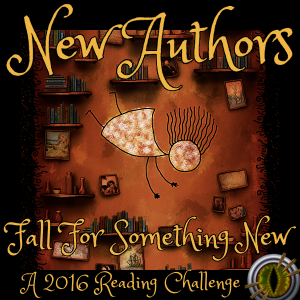


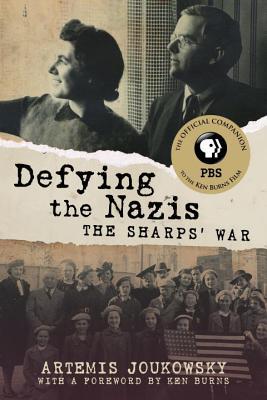



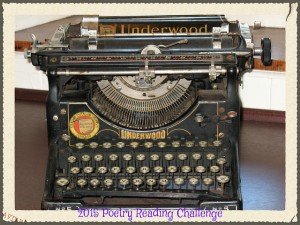
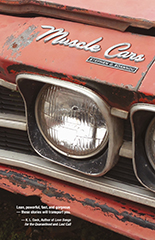

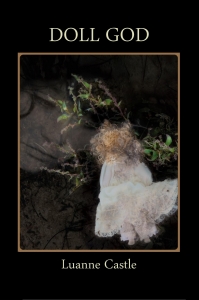
 About the Poet:
About the Poet: